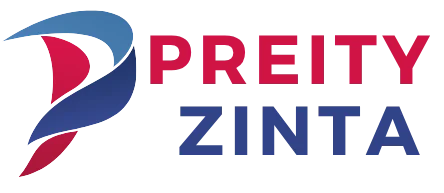Table of Contents
ToggleIn a world where toddlers can operate smartphones better than most adults, understanding early childhood education has never been more crucial. The 15th edition of Early Childhood Education Today dives into the ever-evolving landscape of teaching our youngest learners. It’s packed with the latest research, innovative strategies, and a sprinkle of humor that’ll make you chuckle while you learn.
Overview of Early Childhood Education Today 15th Edition
“Early Childhood Education Today, 15th edition” serves as a comprehensive resource for educators. This edition incorporates current research and best practices that align with modern educational standards. Topics include effective classroom management techniques, developmentally appropriate practices, and the significance of family engagement in early learning.
Innovative teaching strategies are highlighted throughout the text. Educators find insights on integrating technology into the curriculum, ensuring that lessons captivate young learners in an increasingly digital world. Additionally, the humor woven throughout the content makes complex subjects more relatable and engaging.
Evidence-based approaches chart the course for successful teaching. Research emphasizes the value of play in learning, demonstrating how hands-on experiences foster creativity and critical thinking. Strategies for multicultural education promote inclusivity and respect for diversity, enabling students from various backgrounds to thrive.
The authors emphasize the role of assessment in early education. Effective assessment guides instruction, helping educators tailor learning experiences to meet individual student needs. Readers also gain access to resources that enhance professional development opportunities, fostering continuous improvement.
Updated case studies illustrate real-world applications of theories and practices. These examples show how educators successfully implement concepts in various classroom settings. Collectively, the content prepares educators to navigate the diverse challenges they may face in the field.
Overall, “Early Childhood Education Today, 15th edition” equips educators with essential tools that promote effective teaching and enrich the learning environment for young children.
Key Topics Covered
The 15th edition of “Early Childhood Education Today” encompasses essential topics for modern educators. This resource equips teachers with effective strategies for nurturing young learners.
Developmentally Appropriate Practices
Developmentally appropriate practices focus on meeting children at their individual stages of development. These practices emphasize age-appropriate activities and learning experiences. By aligning teaching methods with children’s needs, educators enhance engagement and comprehension. The text outlines various approaches to create inclusive learning environments. Strategies include differentiating instruction and recognizing diverse learning styles. Research-backed methods highlight the importance of social-emotional development alongside cognitive growth. Teachers develop curricula that cater to each child’s unique strengths and challenges. Thus, implementing developmentally appropriate practices fosters a supportive learning atmosphere.
Importance of Play in Learning
Play plays a crucial role in early childhood education. Engaging in play allows children to explore, create, and interact with their peers. The book underscores how play enhances cognitive, social, and emotional development. Through play, children develop problem-solving skills and creativity. The authors emphasize incorporating various play modalities, such as guided play and free exploration, into daily activities. Educators can facilitate play to support literacy and numeracy skills naturally. When teachers prioritize play in the curriculum, they cultivate an enriching environment. Ultimately, this approach nurtures lifelong learning and curiosity.
New Features in the 15th Edition
The 15th edition of “Early Childhood Education Today” features several significant updates. These changes enhance the value of the resource for educators aiming to improve early learning experiences.
Updated Research and Findings
Current research highlights the impact of early childhood education on long-term development. Rigorous studies emphasize the importance of play-based learning and its effects on children’s cognitive, social, and emotional growth. New findings demonstrate how technology can positively influence engagement when integrated thoughtfully into the curriculum. Case studies illustrate tangible results from implementing evidence-based practices in diverse classroom settings. Data indicates that family engagement and multicultural approaches foster an inclusive atmosphere, enriching children’s learning experiences. Educators benefit from access to the latest statistics and findings that support effective teaching strategies.
Enhanced Educational Frameworks
New instructional frameworks prioritize developmentally appropriate practices. The guidelines align with updated educational standards, ensuring educators implement strategies that meet individual learning needs. Concepts such as social-emotional learning receive more attention, helping educators build caring relationships with young learners. Frameworks encourage collaboration among teachers, families, and communities to create supportive environments. Innovative assessment methods promote ongoing evaluation of students’ progress, allowing for tailored instruction. The focus on inclusivity ensures that all children, regardless of their backgrounds, thrive in the classroom setting.
Practical Applications for Educators
Educators can implement effective classroom management strategies by establishing clear expectations and routines. Utilizing developmentally appropriate practices encourages engagement and promotes understanding among young learners. Integrating technology effectively into the curriculum captivates students’ attention and supports diverse learning styles, allowing for personalized learning experiences.
Incorporating play into the daily schedule serves as a vital tool for enhancing cognitive, social, and emotional development. Children thrive in environments that prioritize exploration and creativity through play modalities. Collaborative projects among peers foster social skills and promote emotional intelligence, vital components of early childhood learning.
Assessment methods play a crucial role in tailoring instruction to meet individual student needs. Ongoing evaluation helps educators track progress, ensuring all children receive the support they require. Engaging families in the learning process strengthens the connection between home and school, fostering a holistic approach to education.
Training opportunities for educators can enhance their understanding of multicultural education, emphasizing inclusivity in the classroom. Professional development workshops provide insights into integrating various teaching strategies that address the diverse backgrounds of students. Continuous learning among educators translates into enriched classroom experiences for children.
Creating inclusive learning environments benefits from awareness and understanding of children’s unique needs. Environments that support social-emotional development yield positive outcomes, as children learn essential skills like empathy and cooperation. Sustained engagement in these practices leads to improved student outcomes, reinforcing the importance of high-quality early childhood education.
Ultimately, the 15th edition of “Early Childhood Education Today” empowers educators with current research and practical applications. Case studies offer real-world examples that illustrate the successful implementation of innovative strategies. By embracing these insights, educators can cultivate enriching learning experiences for young children, fostering lifelong curiosity and growth.
The 15th edition of “Early Childhood Education Today” stands as a pivotal resource for educators navigating the complexities of modern teaching. By emphasizing play-based learning and the thoughtful integration of technology, it equips teachers with innovative strategies that resonate with today’s young learners.
With a focus on developmentally appropriate practices and the importance of family engagement, this edition highlights the need for inclusivity in early childhood education. Through updated research and practical applications, educators are empowered to create enriching environments that foster curiosity and lifelong learning.
Ultimately, this comprehensive guide not only enhances teaching practices but also supports the holistic development of every child in their care.







